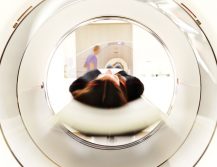
Nothing reminds you of your age like an achy back. All of a sudden, even restful activities, such as sleeping or hanging out on your couch can feel uncomfortable. You’ve tried everything: more pillows, a new mattress, switching sleeping positions. So what do you do if, despite all these modifications, your back is still in pain?
The first thing to recognize is that you’re not alone. Back pain is one of the most common reasons why people go to the doctor.
Physical Therapy for Back Pain Relief
Before you consider physical therapy, think about what may be causing the back pain. Sometimes the root cause is something minor, such as sitting with bad posture or a sudden movement that may have caused a sprain. Typically, when this happens, the pain will subside on its own after a couple of days, through conservative treatment such as heat therapy, rest, and over-the-counter medication.
However, if the pain is chronic or gets worse, it could signify a more serious health condition, such as arthritis, kidney infections, a herniated disc, bowel issues, or even cancer.
If your symptoms don’t improve within a few days, seek medical help. If your doctor recommends physical therapy, make sure to wear comfortable clothes for that first appointment, since you’ll have to do a lot of moving around. This is because the therapist will want to measure your posture, range of motion and the varying strength of your different muscles before devising a physical therapy plan.
What to expect from physical therapy
A physical therapist is a trained professional that will assess your back ailment and suggest specific types of exercises to help you heal. Some of these include:
- Stretching
- Strength Training
- Low impact aerobic activity
- Manual Therapy
- Electrical Stimulation
6 Benefits of Physical Therapy
- Personalized Care. One of the main benefits of seeking help from a physical therapy is that he or she will not perform a one-size-fits-all approach. They will take into account your body type, age, lifestyle (whether you’re typically a sedentary person or an athlete), existing health conditions, and how you respond to different types of movement.
- Decreased pain. A physical therapy will look at your gait (the way you move when you walk/run), as well as how you get up from a sitting and laying down position. This allows them to suggest exercises that will diminish pain that’s directly caused by your movements. The therapist may also use electrical stimulation to restore function.
- Restored mobility. Physical therapists not only treat pain, they also look for the root cause of discomfort. For example, if your lower back is stiff, the therapist will focus on easing that stiffness. If your back muscles are weak, the therapist may recommend strengthening exercises that will aid in recovering your full range of motion.
- May eliminate the need for surgery. Surgery should only ever be considered as a last resort, and physical therapy is one of the most proactive ways to attempt to resolve back pain conservatively.
- Reduces the risk of further injury. If you are required to do repetitive movements due to your job duties or athletic activity, your physical therapy will take into account such movements and suggest recovery stretches to avoid future back injury.
- Reduces the risk of falls. If you have poor posture or a degenerative disease that increases the likelihood of falling, a physical therapist will design a plan to improve your balance, as well as improve coordination.
To be best prepared, make a full list of possible factors that may be contributing to your pain, including job duties, sports, stressful life events, any recent injuries, falls, or accidents, as well as family history. Your physical therapist will work with you to figure out a program that will best work for you.
If you’re experiencing back pain, let us help you.
At Spine Works Institute, we take pride in helping patients through safe and natural therapies. We have an entire team of physical therapists, chiropractors, massage therapists, and other healthcare professionals who are ready to assist you.
Call us at (817) 616-0700 to schedule an appointment, or learn more about our practice here.








